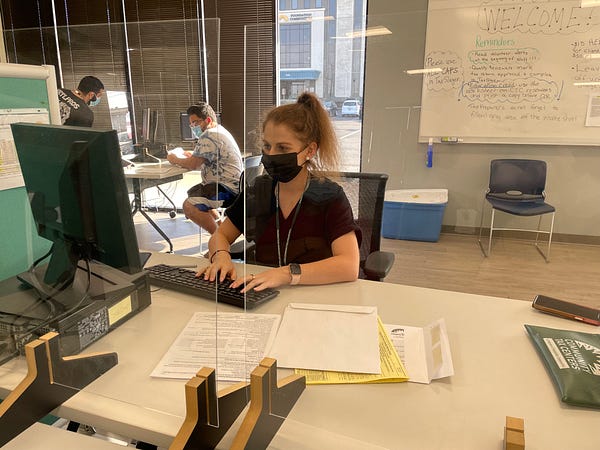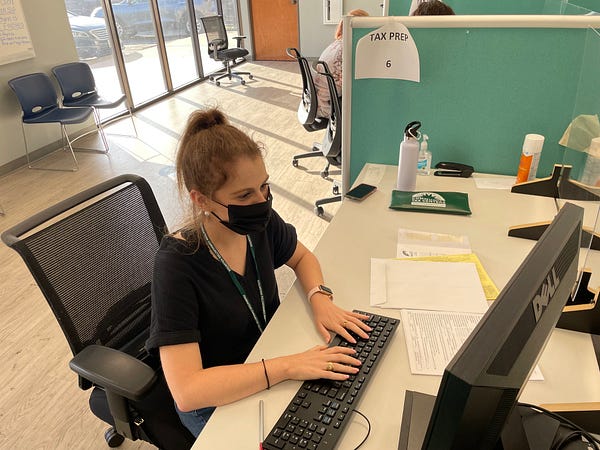Scoring Tax Season Wins
McCombs students volunteer to help low-income families file taxes and reclaim millions for Austin economy


This is the time of year when many of us can’t wait to check the mailbox, looking for a fat refund check. But for many Austin-area tax filers who can’t afford help preparing their tax forms, that check may be thousands less than it should be.
And those unclaimed credits mean a multi-million dollar hemorrhage in the Austin economy each year.
It’s a problem students at the McCombs School of Business at The University of Texas at Austin are partnering to solve. For the 15th year, students in the school’s tax practicum class are joining local nonprofit Foundation Communities to help low-income tax filers complete their tax forms, taking advantage of all available benefits to yield a fair refund.
“When asked how they are going to use the refund or credit, our clients do not answer, ‘vacation,’” says Associate Professor of Instruction J. Kamas, who is a McCombs faculty co-mentor for the organization’s Prosper Tax Help service along with Assistant Professor of Instruction Donna Johnston-Blair.
“It is typically rent, education, day-to-day spending, gas, and utilities,” Kamas says. “One client responded they were going to use it to live indoors for six months. While some is likely saved for the future or used outside of Austin, the vast majority of this money goes directly back into the local economy fairly quickly.”
At the program’s height in 2018, families who were served received more than $34 million in refunds, representing 20,000 returns. Each year, about 200 McCombs student volunteers make up roughly one-third of all volunteer hours at Prosper Tax Help locations.
Student volunteers complete 24 hours of IRS training to participate in the program. Undergraduates earn course credit by volunteering 55 hours and graduate students 63 hours.
“There’s no doubt that most of this money would be lost to the community if it weren’t for people trained to use the software that identifies little-known credits,” Johnston-Blair says.
Foundation Communities began the Prosper Tax Help program in 2006 to help those who otherwise would have missed out on the earned income tax credit, among several others benefits commonly unclaimed.
The services are offered in person this year, with COVID precautions in place. The number of filers served dropped dramatically the last two years, when the help went virtual.
Individuals earning less than $50,000 per year are eligible for the service at six Austin and Round Rock tax centers. Because of COVID restrictions, appointments are required.
Story by Judie Kinonen
About this Post
Share:


